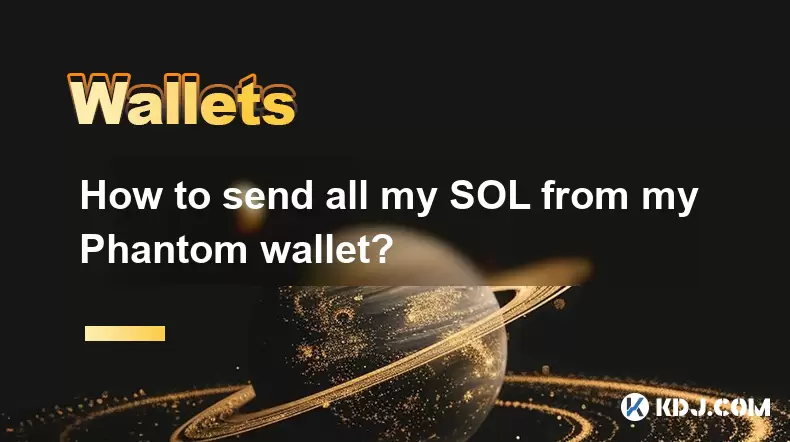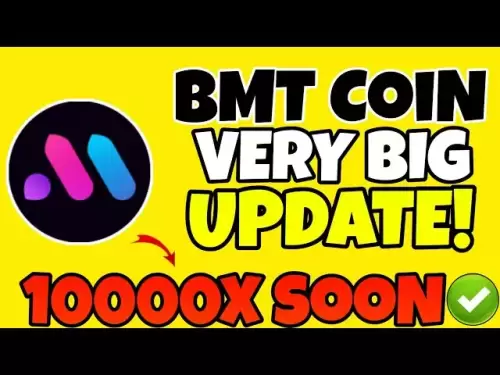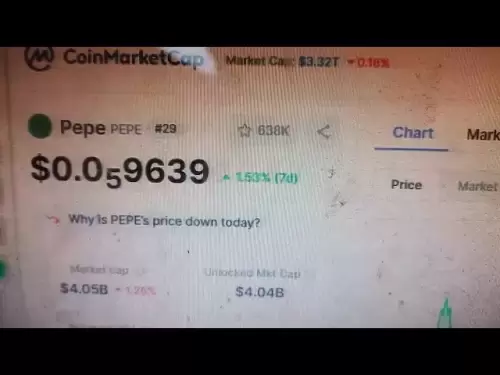-
 Bitcoin
Bitcoin $108,562.4295
0.46% -
 Ethereum
Ethereum $2,533.9553
1.52% -
 Tether USDt
Tether USDt $1.0002
-0.01% -
 XRP
XRP $2.2542
2.23% -
 BNB
BNB $662.4567
1.48% -
 Solana
Solana $151.4114
3.48% -
 USDC
USDC $0.9999
0.00% -
 TRON
TRON $0.2860
0.91% -
 Dogecoin
Dogecoin $0.1685
3.72% -
 Cardano
Cardano $0.5809
1.63% -
 Hyperliquid
Hyperliquid $39.2916
1.85% -
 Sui
Sui $2.8874
0.85% -
 Bitcoin Cash
Bitcoin Cash $496.5801
2.72% -
 Chainlink
Chainlink $13.3582
2.48% -
 UNUS SED LEO
UNUS SED LEO $9.0279
0.07% -
 Avalanche
Avalanche $18.0773
2.30% -
 Stellar
Stellar $0.2426
3.05% -
 Toncoin
Toncoin $2.9086
6.01% -
 Shiba Inu
Shiba Inu $0.0...01170
2.97% -
 Hedera
Hedera $0.1587
3.47% -
 Litecoin
Litecoin $87.4596
1.13% -
 Monero
Monero $317.0425
0.73% -
 Polkadot
Polkadot $3.3778
1.90% -
 Dai
Dai $0.9999
-0.01% -
 Ethena USDe
Ethena USDe $1.0001
-0.01% -
 Bitget Token
Bitget Token $4.4095
0.63% -
 Uniswap
Uniswap $7.3593
6.80% -
 Pepe
Pepe $0.0...09910
3.64% -
 Aave
Aave $274.7388
2.68% -
 Pi
Pi $0.4607
0.48%
Does the storage of Bitcoin wallets need to take geographical location into consideration?
Bitcoin wallet storage location significantly impacts security and accessibility due to varying legal frameworks, cybersecurity infrastructure, and internet access reliability across different jurisdictions.
Mar 21, 2025 at 08:36 pm

Does the storage of Bitcoin wallets need to take geographical location into consideration?
The geographical location of your Bitcoin wallet storage significantly impacts its security and accessibility. While Bitcoin itself is decentralized, the methods used to access and manage it are not immune to geographical limitations and risks. Understanding these nuances is crucial for responsible Bitcoin ownership.
Jurisdictional Differences and Regulations:
Different countries have varying regulations regarding cryptocurrency. Some nations have embraced Bitcoin and established clear legal frameworks, while others remain hesitant or even outright ban it. Storing your Bitcoin in a jurisdiction with unfriendly regulations could limit your access or expose you to legal risks. For instance, accessing a wallet from a country where crypto is banned might be impossible or result in legal repercussions. Understanding the legal landscape of your location, as well as the location of your chosen storage method, is paramount.
Security Risks Based on Location:
Physical security is a major concern. Storing physical hardware wallets in regions with high crime rates or political instability significantly increases the risk of theft or loss. Similarly, relying on online services located in regions with weak cybersecurity infrastructure leaves your Bitcoin vulnerable to hacking and data breaches. The digital security of a specific region directly impacts the safety of your assets.
Internet Access and Infrastructure:
Reliable internet access is essential for accessing your Bitcoin wallet, especially online wallets. Areas with limited or unreliable internet connectivity can severely hamper your ability to manage your funds. This is particularly critical during emergencies or in regions prone to internet outages. Consider the stability and speed of internet access in your chosen location for storing your Bitcoin.
Tax Implications:
Tax laws related to cryptocurrency vary drastically across jurisdictions. The location where you store your Bitcoin can influence how your transactions are taxed. For example, some countries tax capital gains on cryptocurrency transactions, while others do not. Understanding the tax implications in your region and the region where your wallet is hosted is essential for compliance and avoiding potential penalties.
Hardware Wallet Storage Considerations:
If using a hardware wallet, its physical location is crucial. Keep it in a secure location, away from potential hazards like fire or water damage. Consider using a safe or a secure storage location. The physical security of your hardware wallet is paramount to safeguarding your Bitcoin.
Software Wallet Storage Considerations:
Software wallets, while convenient, are inherently more vulnerable to hacking and malware. The security of your operating system and internet connection becomes critical. Consider using a strong, unique password and enabling two-factor authentication. Regular software updates are also vital to patching security vulnerabilities. Choose software that aligns with the security standards of your location and your personal risk tolerance.
Exchange-Based Storage:
Storing Bitcoin on exchanges offers convenience but comes with significant risks. Exchanges have been targeted by hackers in the past, leading to substantial losses for users. The geographical location of the exchange and its security practices should be carefully considered. Research the exchange’s track record, security measures, and insurance policies before storing any substantial amount of Bitcoin.
Cloud-Based Storage:
Cloud-based storage offers accessibility but introduces risks associated with data breaches and third-party access. The location of the cloud server and the security measures employed by the provider should be thoroughly investigated. Ensure the provider has robust security protocols and complies with relevant data protection regulations.
Step-by-Step Guide to Choosing a Secure Location for Your Bitcoin Wallet:
- Assess your risk tolerance: How much risk are you willing to accept? High-risk tolerance might allow for less secure storage, but this is generally not recommended.
- Research jurisdictional regulations: Understand the legal landscape of your location and any potential restrictions on cryptocurrency ownership and usage.
- Evaluate internet access and infrastructure: Ensure reliable internet access is available where you intend to store your Bitcoin.
- Consider physical security: If using a hardware wallet, choose a safe and secure location to protect it from theft or damage.
- Prioritize data security: Employ strong passwords, two-factor authentication, and regularly update software to mitigate cyber threats.
- Diversify your storage: Don't keep all your Bitcoin in one place. Spread your holdings across multiple wallets and storage methods to reduce risk.
Frequently Asked Questions:
Q: Is it safer to store my Bitcoin in a country with strong cryptocurrency regulations?
A: Generally, yes. Strong regulations often mean better protection against fraud and theft, but this isn't a guarantee. Regulation itself doesn't directly protect your wallet from hacking.
Q: Does storing my Bitcoin in a different country affect my taxes?
A: Yes, absolutely. Tax laws vary widely between countries. You need to comply with the tax laws of your country of residence, regardless of where your Bitcoin is stored.
Q: Can I use a VPN to mask my location when accessing my Bitcoin wallet?
A: While a VPN can mask your IP address, it doesn't necessarily enhance security. Some exchanges may block VPN usage, and using a VPN poorly can still expose you to risks.
Q: If I lose my hardware wallet in a foreign country, can I recover my Bitcoin?
A: Recovery depends on whether you have a recovery seed phrase and the specific hardware wallet's recovery mechanisms. Losing your hardware wallet is a serious event, regardless of location.
Q: Are online wallets safer in certain countries than others?
A: The security of an online wallet isn't inherently tied to a country. It depends on the security practices of the specific provider and the overall cybersecurity infrastructure of the region where the servers are located.
Disclaimer:info@kdj.com
The information provided is not trading advice. kdj.com does not assume any responsibility for any investments made based on the information provided in this article. Cryptocurrencies are highly volatile and it is highly recommended that you invest with caution after thorough research!
If you believe that the content used on this website infringes your copyright, please contact us immediately (info@kdj.com) and we will delete it promptly.
- Litecoin Breakout Watch: What Traders Need to Know Now
- 2025-07-06 16:50:13
- Bitcoin, Solana, Ethereum: Decoding the Latest Buzz on the Blockchain
- 2025-07-06 16:50:13
- Widnes Resident's 50p Could Be Your Ticket to Easy Street: Rare Coin Mania!
- 2025-07-06 16:55:13
- Bitcoin, Solaris Presale, and Token Rewards: What's the Buzz?
- 2025-07-06 16:55:13
- Ethereum Under Pressure: Price Drop Amid Global Uncertainties
- 2025-07-06 17:00:13
- XRP, SEC Case, and Prosperity: A New Era for XRP Holders?
- 2025-07-06 17:10:13
Related knowledge

How to cancel a pending transaction in Phantom wallet?
Jul 03,2025 at 07:21pm
Understanding Pending Transactions in Phantom WalletA pending transaction in the Phantom wallet occurs when a user initiates a transfer or interaction with the Solana blockchain, but it hasn't yet been confirmed by the network. This can happen due to various reasons such as low transaction fees, network congestion, or incorrect gas settings. It's import...

How to see the estimated value of my tokens in Phantom wallet?
Jul 04,2025 at 12:21am
What is Phantom Wallet?Phantom wallet is one of the most popular cryptocurrency wallets designed for the Solana blockchain. It allows users to store, send, receive, and manage various tokens built on Solana, including SPL tokens and NFTs. The wallet offers a user-friendly interface, making it accessible for both beginners and advanced users in the crypt...

How to lock my Phantom wallet extension?
Jul 03,2025 at 11:14am
What Is the Phantom Wallet and Why Lock It?The Phantom wallet is a popular non-custodial cryptocurrency wallet designed for interacting with the Solana blockchain. Supporting both browser extensions and mobile apps, Phantom allows users to store, send, receive, and stake SOL tokens, as well as interact with decentralized applications (dApps). Securing y...

Does Phantom wallet offer two-factor authentication (2FA)?
Jul 03,2025 at 09:00am
Understanding Phantom Wallet and Its Security FeaturesPhantom wallet is a widely used non-custodial cryptocurrency wallet that supports the Solana blockchain. It allows users to store, send, receive, and interact with decentralized applications (dApps) seamlessly. As security is a top priority for any crypto wallet user, security features like two-facto...

How to send all my SOL from my Phantom wallet?
Jul 06,2025 at 10:00am
Preparing to Send SOL from Your Phantom WalletBefore initiating any transaction, it is crucial to ensure that your Phantom wallet is fully set up and connected to the correct network. Phantom supports multiple networks, but for sending SOL, you must be on the Solana blockchain. Confirm this by checking the network indicator in the top-right corner of th...

What is "rent" on Solana and how does it affect my Phantom wallet?
Jul 02,2025 at 08:35pm
Understanding 'Rent' on SolanaIn the context of Solana, the term 'rent' refers to a storage fee that users pay for maintaining data on the blockchain. Unlike Ethereum, where storage costs are paid once via gas fees during contract deployment, Solana implements a recurring cost model to ensure efficient usage of network resources. This means that any acc...

How to cancel a pending transaction in Phantom wallet?
Jul 03,2025 at 07:21pm
Understanding Pending Transactions in Phantom WalletA pending transaction in the Phantom wallet occurs when a user initiates a transfer or interaction with the Solana blockchain, but it hasn't yet been confirmed by the network. This can happen due to various reasons such as low transaction fees, network congestion, or incorrect gas settings. It's import...

How to see the estimated value of my tokens in Phantom wallet?
Jul 04,2025 at 12:21am
What is Phantom Wallet?Phantom wallet is one of the most popular cryptocurrency wallets designed for the Solana blockchain. It allows users to store, send, receive, and manage various tokens built on Solana, including SPL tokens and NFTs. The wallet offers a user-friendly interface, making it accessible for both beginners and advanced users in the crypt...

How to lock my Phantom wallet extension?
Jul 03,2025 at 11:14am
What Is the Phantom Wallet and Why Lock It?The Phantom wallet is a popular non-custodial cryptocurrency wallet designed for interacting with the Solana blockchain. Supporting both browser extensions and mobile apps, Phantom allows users to store, send, receive, and stake SOL tokens, as well as interact with decentralized applications (dApps). Securing y...

Does Phantom wallet offer two-factor authentication (2FA)?
Jul 03,2025 at 09:00am
Understanding Phantom Wallet and Its Security FeaturesPhantom wallet is a widely used non-custodial cryptocurrency wallet that supports the Solana blockchain. It allows users to store, send, receive, and interact with decentralized applications (dApps) seamlessly. As security is a top priority for any crypto wallet user, security features like two-facto...

How to send all my SOL from my Phantom wallet?
Jul 06,2025 at 10:00am
Preparing to Send SOL from Your Phantom WalletBefore initiating any transaction, it is crucial to ensure that your Phantom wallet is fully set up and connected to the correct network. Phantom supports multiple networks, but for sending SOL, you must be on the Solana blockchain. Confirm this by checking the network indicator in the top-right corner of th...

What is "rent" on Solana and how does it affect my Phantom wallet?
Jul 02,2025 at 08:35pm
Understanding 'Rent' on SolanaIn the context of Solana, the term 'rent' refers to a storage fee that users pay for maintaining data on the blockchain. Unlike Ethereum, where storage costs are paid once via gas fees during contract deployment, Solana implements a recurring cost model to ensure efficient usage of network resources. This means that any acc...
See all articles

























































































